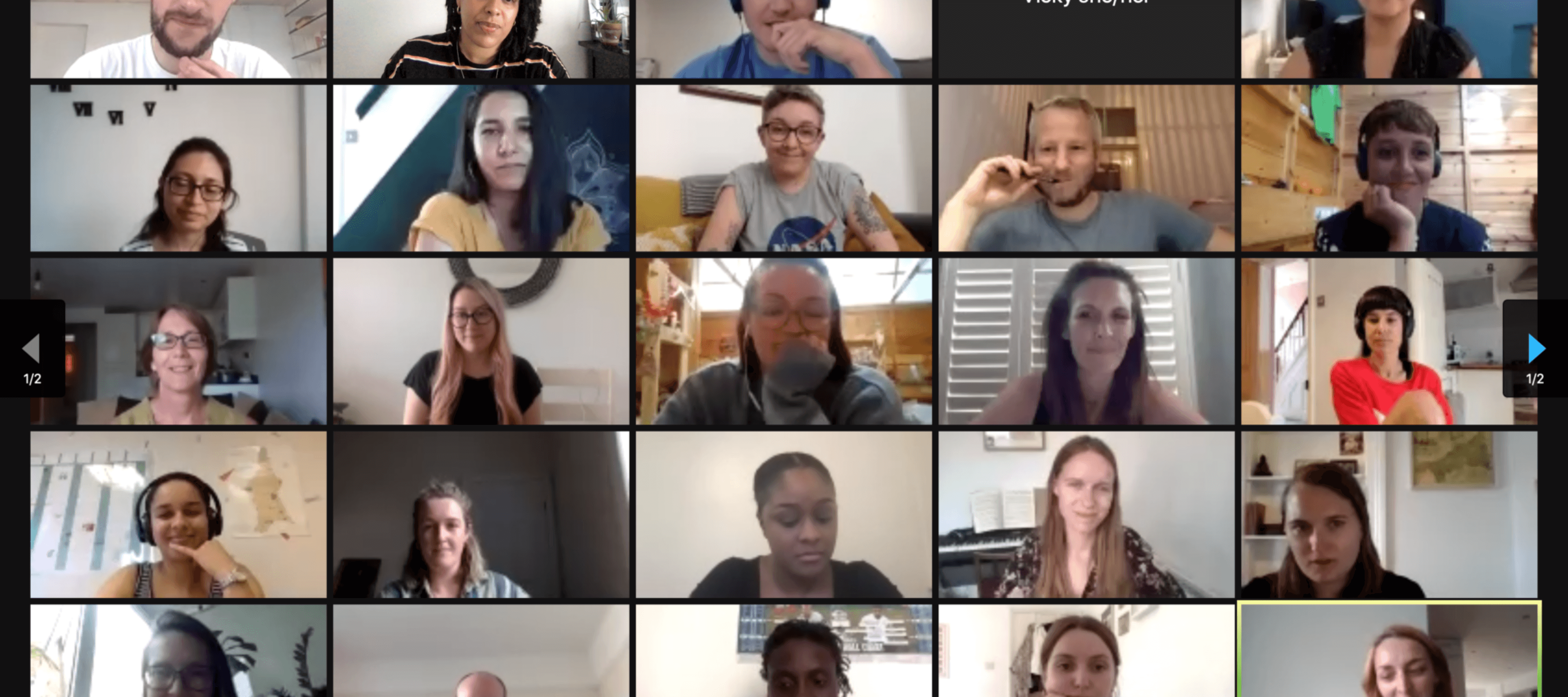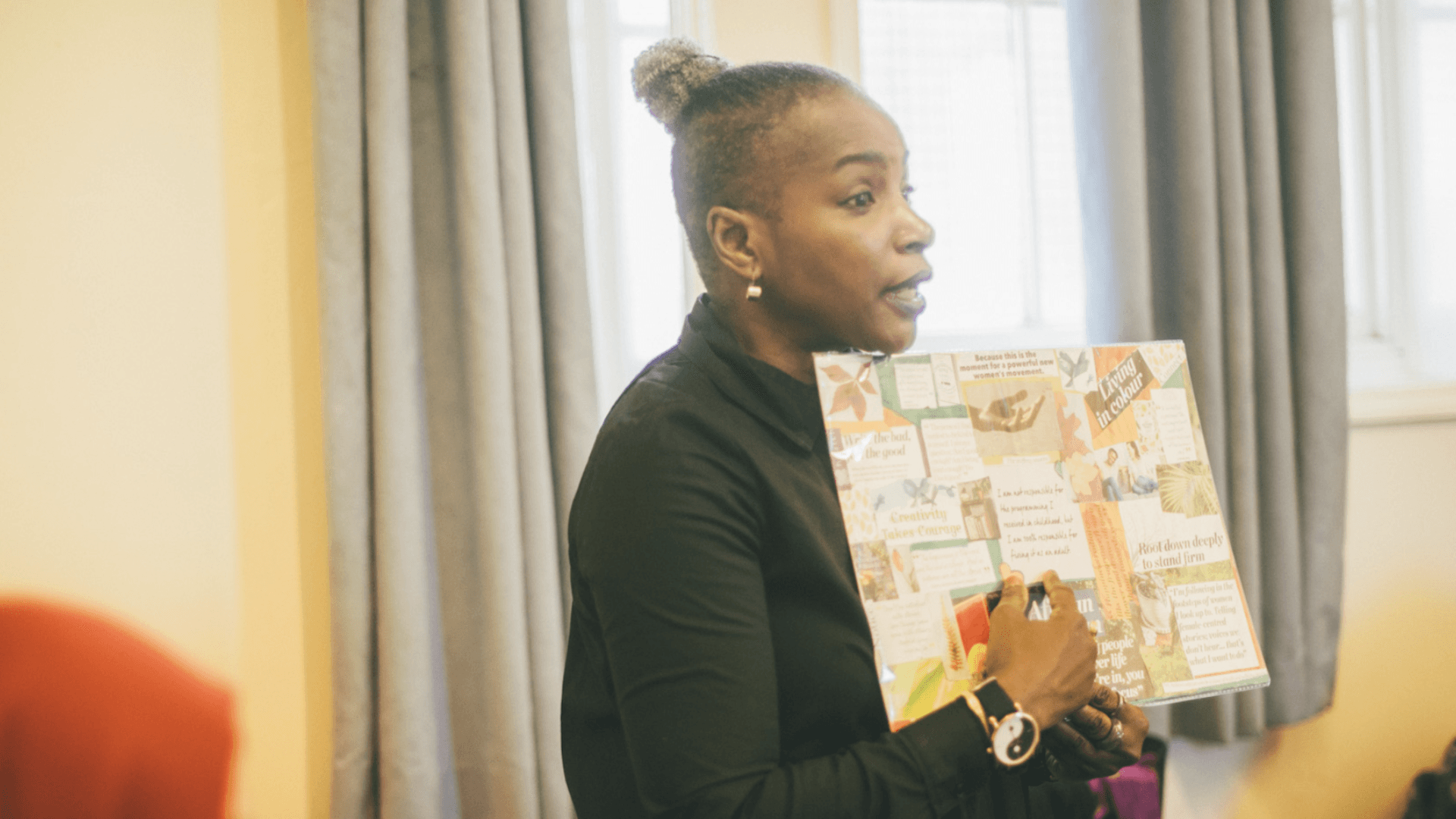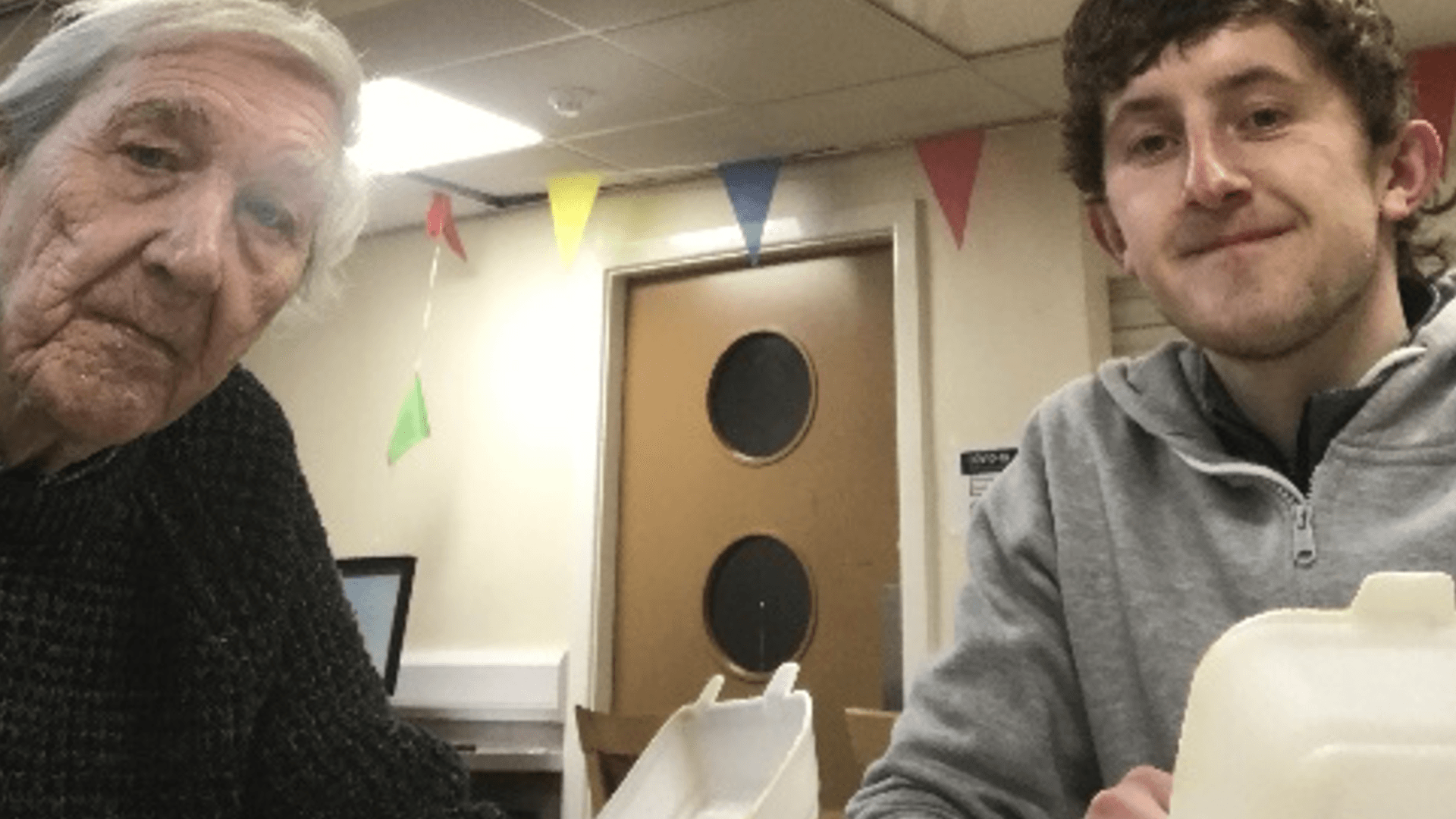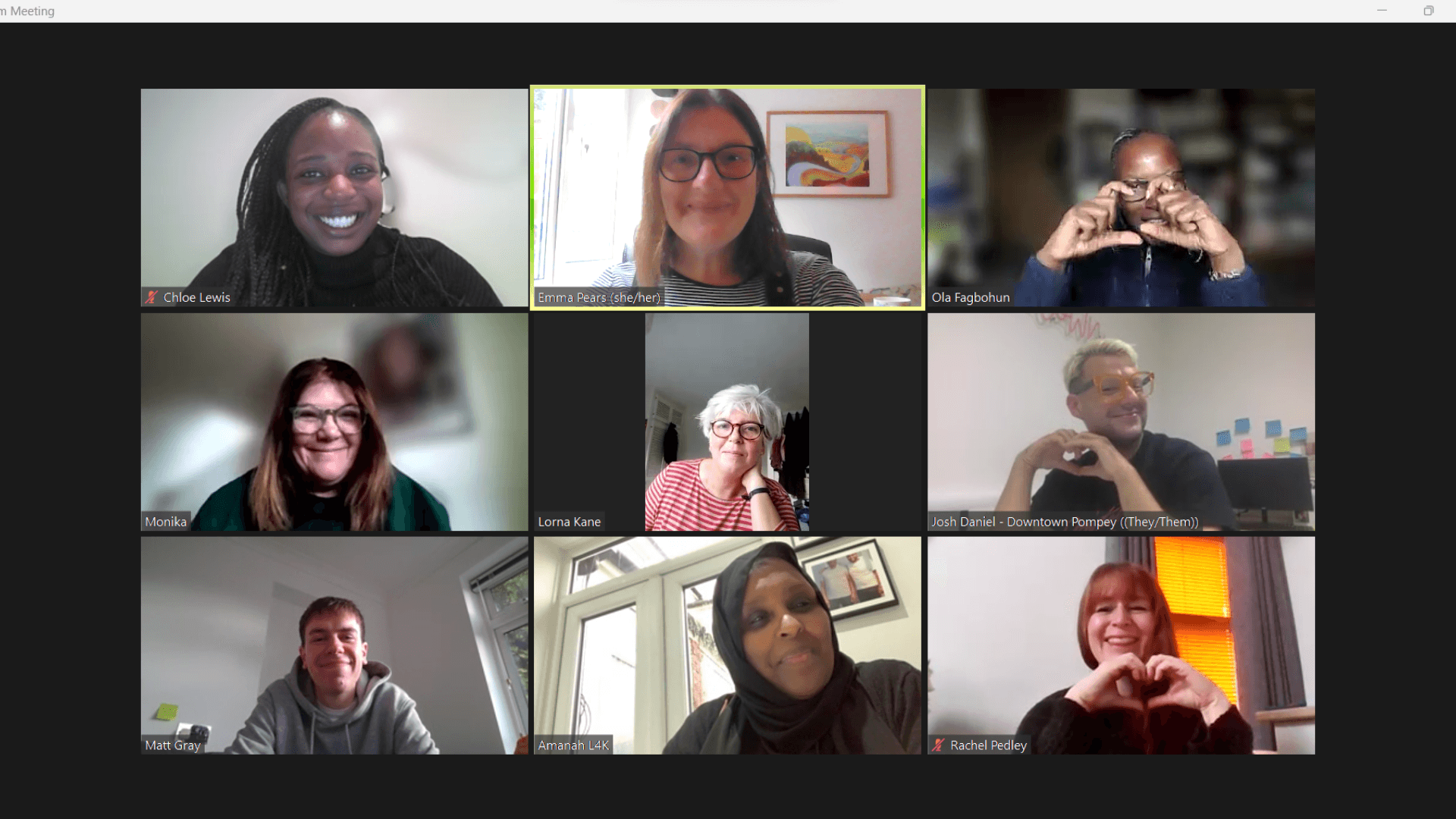
Building connection through recruitment
Posted by The Cares Family on 1st February 2022
Please note: this post is 46 months old and The Cares Family is no longer operational. This post is shared for information only
Last year, three programmes roles became available at East London Cares – Social Clubs Coordinator, Love Your Neighbour Coordinator and Volunteer and Outreach Coordinator. As the youngest of The Cares Family charities our team is small but mighty, so we were looking for people with creativity and adaptability, who were willing to get stuck into growing and strengthening East London Cares’ community and programmes.
While the prospect of finding three new team members in quick succession was daunting, it was also a fantastic opportunity to challenge the recruitment processes we had used historically, and to try new methods to find new people – methods that would be not just helpful for us, but that could be applied by community organisations everywhere.
Here’s an outline of some of the new processes we’ve introduced in the last year across The Cares Family, what we’ve learned from them so far, and what we hope to continue to improve on.
A task-based approach
Programmes roles within The Cares Family are varied, exciting and skills-based. People who have already had great success in our varied roles have come from a wide variety of career backgrounds and interests, so we didn’t want to just attract applicants with like-for-like experience, or just from the charity sector. And so, inspired by this job ad from Taz Rasul at Just Like Us, we decided to trial a task-based recruitment process and created five tasks that reflected the Social Clubs Coordinator role in practice. Applicants were asked to complete and submit these tasks in place of a CV and cover letter.
We asked for feedback during the first round of recruitment, and received an overwhelmingly positive response to this process. Applicants felt that this was a fairer, more inclusive process, which allowed them to demonstrate their skills rather than a timeline of opportunities they may or may not have been afforded. However it was felt that five tasks was too many, so we reduced this to one audio recording, and two shorter tasks for the next two roles.
“It was refreshing to apply for a job in a completely different way. It felt a fairer process and it was good to not fall into the usual generic processes involved with applying for a job. It gave everyone a fair chance of demonstrating talent, rather than demonstrating a skill at filling in forms.”
Audio introduction
The first task for all three roles asked applicants to provide a two minute audio recording introducing themselves and why they were interested in the role. As a team we meet lots of new younger and older neighbours and new community partners every day, and this task really helped us to build a picture of how each applicant might handle that side of the job without the nerves and formal setting of an interview environment. It also helped make each application more personal, offering a sense of human connection that’s often missing from standard cover letters and CVs.
Job information sessions
For each vacancy we included the opportunity for potential applicants to join us for an informal, online information session. These sessions were designed to offer people the chance to meet the team, ask questions and get some insight into what it’s like to work at East London Cares. Work culture can make a huge difference to employee performance and retention, and so we wanted people to feel encouraged that this is a safe and enjoyable place to work, and to be excited about applying. No one was assessed during the session, and attendees were free to keep their cameras off.
Again, the feedback we received for this was very positive, not just from attendees but from current team members too – it made them feel part of the recruitment process, but also served as a reminder of the things they enjoy about their jobs.
In future, we’d consider recording these sessions and adding them to our website(s) for people who aren’t able to attend, or for anyone interested in future vacancies – which we've trialled with our recent Multiplier application process.
No interview surprises
When inviting applicants to interview, we included an overview of the topics that will be covered through the interview questions, and asked interviewees to start prepping the examples they would like to share with us. During the interview we then delved a little deeper, and encouraged interviewees to expand on their answers by asking more about their specific experiences.
We received positive feedback for this, and were told that it helped ease nerves and set expectations. As interviewers we found that answers given were noticeably more efficient and interviewees were less anxious and more open. Combined, this allowed us to learn a substantial amount about each person, their skills and their experience.
What we’ve learned
- Quality over quantity – we received fewer applications through the task based approach, but the applications we did receive were much stronger and more relevant to the advertised role.
- Shortlisting made simpler – We didn’t have to wade through hundreds of CVs and cover letters to try and match experience with skills. Instead we felt the tasks adequately demonstrated each applicant's unique approach to the role.
- More transparency – both for us and the applicants, who knew what to expect from the job if they were successful.
- Make the tasks relevant – the tasks should offer some insight into each role. For example, for our Social Clubs Coordinator role we asked applicants to design a programme of events. Priyanka, who is now in post, told us that she was able to use her task as a head start when she started the job.
- Experience vs. skills – for these roles, knowing someone's complete work history wasn’t necessary. But if work experience in a similar role is essential, then CVs should still be used. Decide what’s important for you to know before advertising the role, but don’t try to replicate a CV and cover letter through the tasks. This will just create more work for applicants and put people off.
- Respect intellectual property – In all of our job application packs, we stated that submitted tasks would not be used or seen by anyone other than those on the interviewing panel. The tasks were not, and should never be, designed as a way of harvesting ideas from people.
- The ripple effect of change – just trying something new to challenge old systems has an impact and encourages others to do the same. It doesn’t have to be perfect, and being open to honest feedback can help improve things further. Along with other progressive organisations, we've now started a discussion and shared learning group called Recruitment Renegades, which is open to anyone in the sector (or beyond) who is keen on shaking up traditional recruitment methods.
- You won’t please everyone, but maybe that’s the point – the task based approach is great for those applicants who are confident they can do the job, but may not have the previous experience to demonstrate that on paper. But for others, particularly those who have been afforded great work opportunities or whose CVs read particularly well, this process might seem like extra work. That's OK – it's all about opening up the process to people with experience who may previously have been overlooked.
There’s still so much more we’d like to refine and build on with our recruitment processes; like ensuring the process is inclusive for applicants who are neurodiverse, or accessible for people who have experienced long-term unemployment. But as long as we continue to be considerate of what we are asking of people and how relevant it is to the role, this approach can be a much more equitable way of building a diverse team with an exciting wealth of knowledge, lived experience and skills.


